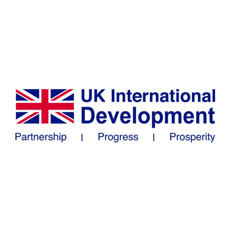To find out about the latest IPBES-12 Parallel Programme events, visit the upcoming events section below.
The natural world that sustains all life is facing an unprecedented crisis. Across the globe, nature is declining at rates never seen before in human history. This deterioration undermines the ecosystems upon which all species depend, and the natural foundations upon which we build our economies, food systems, and the conditions for health and good quality of life.
Yet there are still practical, achievable options to achieve the transformative change needed to halt and reverse biodiversity collapse. Our understanding of environmental systems continues to grow, with new research constantly expanding our knowledge and our options to drive positive change. We know that unsustainable use of land and oceans, overexploitation of natural resources, climate change, invasive alien species, and pollution are major drivers of this crisis – but there are also many available paths and solutions to address these intertwined crises to achieve more just and sustainable futures for people and nature.
Contents
-
What is IPBES-12?
- Business and Biodiversity
- Why is IPBES-12 important?
- JNCC’s role
- Why science-policy platforms matter
-
IPBES-12 Parallel Programme
-
Upcoming events in the Parallel Programme
- Bridging Knowledge for Inclusive Nature Action: Strengthening ILK research collaboration and engagement (date to be confirmed)
- IPBES-12 Science Seminars (February to March)
- Nature Alpha-hosted IPBES-12 Post-Plenary Business and Finance Summit (4 March)
- Natural History Museum of London: The Business of Biodiversity Event (10 March)
- Comment Central & British Ecological Society Spotlight Event. Financing Nature’s Future: The UK’s Path to Scaling Biodiversity Investment (11 March)
- Nature Action Dialogues 2026 – Countdown to 2030: Aligning Ambition, Scaling Integrated Action (12 and 13 May)
- How to get involved
What is IPBES-12?
From 3 to 8 February 2026, the UK will host the twelfth session of the Plenary of IPBES (IPBES-12) in Manchester and this will be preceded by a Stakeholder Day on 2 February 2026. IPBES is the independent intergovernmental body that bridges the divide between science and policy for biodiversity and ecosystem services. One of the ways it achieves this is through harnessing world-leading scientific expertise to develop ground-breaking assessments that support policies and action on key environmental issues. Since its establishment in 2012, IPBES has produced 13 assessments so far, including the 2019 Global Assessment on Biodiversity and Ecosystem Services.
The Plenary is the decision-making body of IPBES. Plenary sessions bring together representatives of the 150 IPBES member Governments, on a roughly annual basis, for week-long deliberations and decisions about the IPBES work programme, budget and other key strategic and operational aspects of the platform. Interested and relevant organisations can also apply to be recognised as official observers to the Plenary, enabling them to follow the sessions in person. One of the main agenda items at IPBES Plenary sessions is the approval of the Summary for Policymakers for each of the IPBES scientific assessments.
IPBES-12 is being funded by the Department for Environment, Food & Rural Affairs (Defra), UK Research & Innovation (UKRI), and the Foreign, Commonwealth & Development Office (FCDO).
Business and Biodiversity
The interlinkages between business and biodiversity will take centre stage at IPBES-12 in Manchester. Over the last three years, world-leading leading scientists and experts have compiled and evaluated evidence on the impacts and dependencies of business on biodiversity to produce a new IPBES assessment. The business and biodiversity assessment report will be considered in depth at IPBES-12 by IPBES member Governments who will then be invited to approve it for publication. The assessment will improve understanding and awareness of the dependencies and impacts of businesses on biodiversity, as well as offering an inventory of approaches for measuring these impacts and dependencies. It will help to inform policies, decisions and action – supporting businesses to implement nature-positive approaches.
Why is IPBES-12 important?
To ensure more just and sustainable futures, it is vital that businesses take decisions informed by the best-available science to better understand risks and opportunities and to accurately monitor and report on performance. Businesses around the world have a central role to play in nature stewardship as they possess the resources, innovation capacity, and global reach needed to drive transformative change across supply chains, operations, and investment decisions. The private sector's commitment to nature-positive practices is not just an environmental imperative but an economic necessity for long-term business success, resilience and prosperity.
JNCC’s role
JNCC supports Defra on UK government engagement with IPBES. This includes providing scientific review of IPBES assessments, supporting negotiations at IPBES Plenary sessions and promoting the implementation of IPBES assessments in the UK. JNCC also helps to engage UK stakeholders in IPBES through the UK IPBES Stakeholder Network. We coordinate a regular newsletter on opportunities to engage with the work of IPBES – for instance by attending related events or applying to become an IPBES assessment author or reviewer.
Why science-policy platforms matter
Science-policy platforms like IPBES are crucial because they bridge the gap between scientific research and policymaking, enabling better evidence-informed decisions on complex issues. They synthesize scientific data, evidence and options for action, ultimately helping governments and other decision-makers address challenges related to the environment, health, and other critical areas. IPBES assessment reports inform and support the development and implementation of policies at all levels from global to national and even local. For example, the IPBES Global Assessment was the primary scientific input to the Kunming-Montreal Global Biodiversity Framework.
IPBES-12 Parallel Programme
The UK hosting IPBES-12 represents an opportunity to demonstrate UK leadership on nature finance and the role of business. For example, through the Task Force for Nature-Related Financial Disclosures, International Advisory Panel on Biodiversity Credits, and the UK’s 2023 Green Finance Strategy. It also leverages the UK’s world-leading scientific community to support our international nature agenda.
To maximise the opportunity IPBES-12 offers, the UK Government, alongside key partners (including JNCC, UKRI, and NatureAlpha), is coordinating a Parallel Programme of engagement events in the lead up to, during and following IPBES-12. This Programme will focus on highlighting what IPBES is and why its assessments are so important, with a focus particularly on the IPBES business and biodiversity assessment. The objectives of the parallel programme are to:
- Enhance the contribution of the private sector towards the UK’s domestic and international environmental goals.
- Showcase the UK’s science and innovation capabilities for environmental monitoring, prevention of biodiversity loss and sustainable economic growth.
- Highlight some of the findings of the IPBES business and biodiversity assessment in the UK.
We will be sharing regular updates on the IPBES-12 Parallel Programme in our IPBES-12 Diary.
Upcoming events in the Parallel Programme
Planning is underway for several events which will form part of the UK’s IPBES-12 Parallel Programme. This page will be updated with new event details as they become available. To catch-up on previous events, check out our IPBES-12 Delegation Diary.
We will update this section when new events are confirmed – please keep checking back.
Bridging Knowledge for Inclusive Nature Action: Strengthening ILK research collaboration and engagement (date to be confirmed)
Postponed – for further details please contact GCBC@defra.gov.uk
This event will explore how Indigenous and Local Knowledge (ILK) can shape global research agendas and multilateral evidence assessments. Hosted by the Global Centre on Biodiversity for Climate and UNESCO, this 90-minute session will bring IPLC representatives, researchers, and partners together to share their experiences and co-create strategies for meaningful research engagement.
IPBES-12 Science Seminars (February to March)
February to March 2026: Online and in-person
A series of seminars focused on the science of IPBES and the implications of the Business and Biodiversity Assessment are being facilitated by the University of Oxford and the London School of Economics.
- Thursday 19 March, 5.00 pm, at the Saïd Business School Large Lecture Theatre in Oxford, Charles Godfray CBE FRS will chair, joined by Dean of Saïd Business School, Mette Morsing, for a second panel reviewing the implications of the Business and Biodiversity Assessment.
- Tuesday 24 March, 6.30 pm, at the London School of Economics’ Old Theatre, this seminar will be entitled Economics versus Policy and the Future of Global Climate and Nature Action.
Further registration details will be shared soon.
Nature Alpha-hosted IPBES-12 Post-Plenary Business and Finance Summit (4 March)
Wednesday 4 March 2026: In-person
To leverage the momentum of IPBES-12 and the Business and Biodiversity Assessment, and ensure its legacy, a high-level post-plenary event and programme will:
- Translate the Assessment’s findings into practical guidance for financial institutions and corporates;
- Strengthen partnerships between business, government, and academia; and
- Position the UK as a global leader in nature-related finance and science-based decision-making.
Natural History Museum of London: The Business of Biodiversity Event (10 March)
Tuesday 10 March 2026: In-person
An evening of discussion and networking while finding out how nature data is blossoming to aid business decisions globally. The event will feature a panel on industry and policy experts plus exclusive access to Museum scientists, alongside the chance to view the Museum’s Fixing Our Broken Planet exhibition.
Comment Central & British Ecological Society Spotlight Event. Financing Nature’s Future: The UK’s Path to Scaling Biodiversity Investment (11 March)
Wednesday 11 March 2026, In-person.
8:30am arrival for refreshments and continental breakfast served, panel discussion begins at 9am followed by a Q&A. Networking 10:00–10:30am
Chair: John Higginson, Editor-in-Chief, Comment Central & Founder of Higginson Strategy
Panel: Professor Mel Austin (President of British Ecological Society), Toby Perkins MP (Chair of EAC Committee), Simon Opher MP (Net Zero APPG Chair), Nick Molho (Head of Sustainability Advocacy for Aviva)
Location: The Library, Old Queen Street Café, 6 Old Queen St, Westminster, London SW1H 9HP
With public funding for nature under sustained pressure, and with the UK committed to ambitious international biodiversity targets, attracting credible and ecologically robust private finance has never been more important.
This event will bring together policymakers, financial institutions, environmental organisations and business leaders to discuss how the UK can strengthen its emerging nature markets – ensuring they are scientifically credible, investable, and capable of delivering real biodiversity gains.
The BES is also set to launch its new science based ecological principles for nature markets at the event, developed to ensure that new financial mechanisms deliver genuine outcomes for nature.
This is an invite only event. Please register your interest by emailing charlotte@higginsonstrategy.com.
Nature Action Dialogues 2026 – Countdown to 2030: Aligning Ambition, Scaling Integrated Action (12 and 13 May)
12–13 May 2026
UNEP-WCMC are hosting the Nature Action Dialogues in Cambridge in May 2026. This dynamic two-day event brings together leaders from business, finance and conservation to explore innovative strategies for tackling nature loss in the private sector. Attendees will have the opportunity to exchange best practices and collaborate on accelerating private-sector action, including acting on the outcomes of the IPBES Business and Biodiversity Assessment.
To find out more and register, please visit the event website.
How to get involved
Join an IPBES Network
You can join the UK IPBES stakeholder network to receive updates and notifications from the UK IPBES team.
There are many other regional and stakeholder networks that may also be of interest, for example the Europe and Central Asia Network of organisations engaging in IPBES, the Open-Ended Network of IPBES Stakeholders, and the International Indigenous Forum on Biodiversity and Ecosystem Services.
Become an IPBES expert
The IPBES secretariat regularly issues calls for nominations of experts to participate in their assessments. For further information visit How to become an IPBES expert.
Register as an observer
Any organisation qualified in matters relating to IPBES can apply to register as an observer and nominate delegates to attend the Plenary. Any organisations wishing to do so can find further information in Notification EM/2025/31.
Check out our IPBES-12 Diary
Find out about recently held Parallel Programme events in our IPBES-12 Diary.
Categories:
Published:





